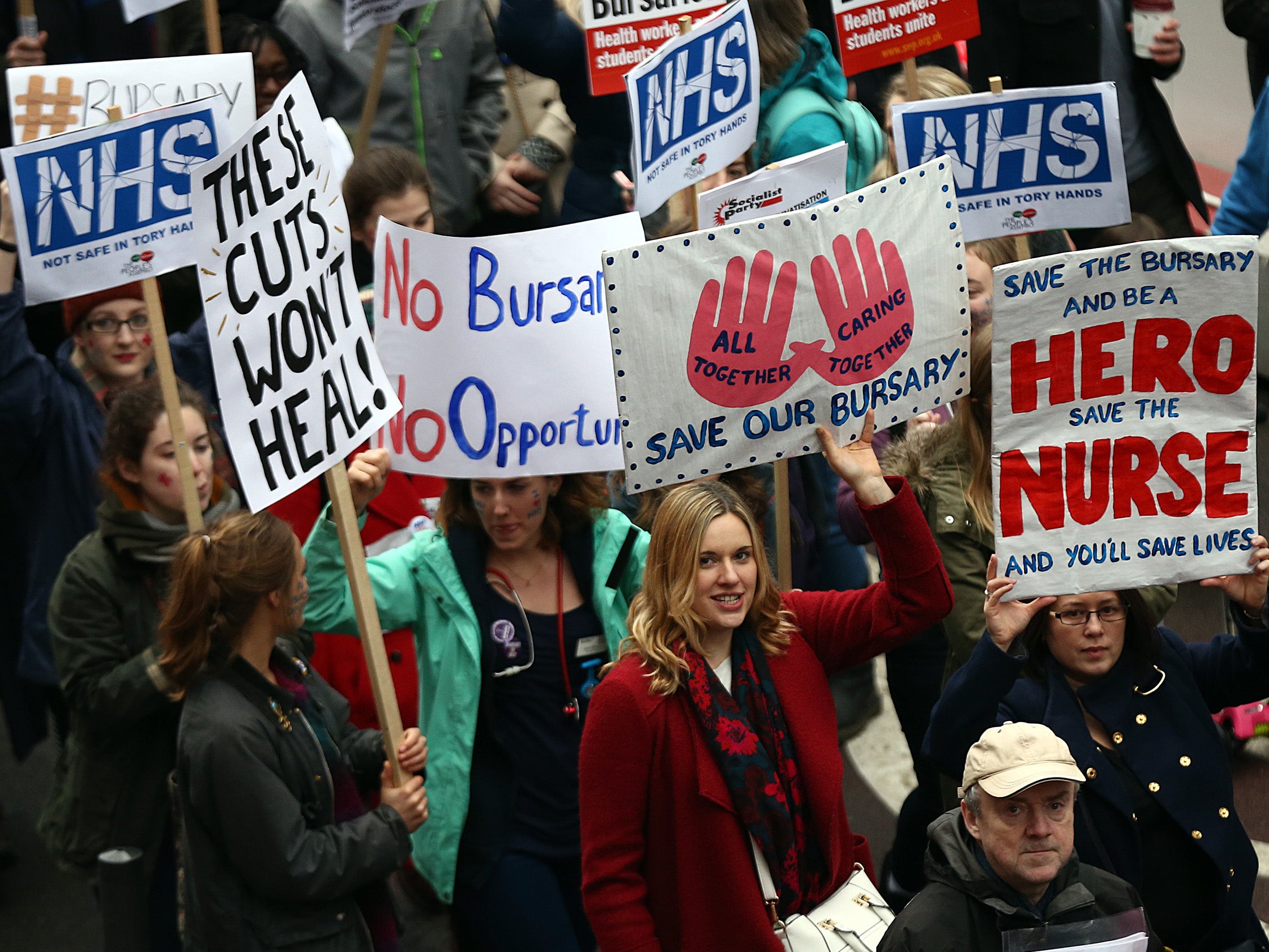Number of experienced nurses quitting doubles in three years, figures show
Nearly 600 nurses with at least a decade’s experience left the profession last year

Nearly twice as many senior nurses left the profession last year than during the same period three years ago, the Royal College of Nursing (RCN) has said.
In the past 12 months, 591 nurses who had been working for 10 years or more decided to quit, compared to 323 in the same months in 2013-14.
Janet Davies, the RCN’s chief executive, said “staff shortages, relentless pressure and poor pay” were to blame for the apparent exodus of experienced nurses revealed by analysis of the organisation’s membership data.
“When these people leave nursing, they are taking years of knowledge and hands-on experience with them,” she said.
“Patients get the best care when the most experienced nurses work alongside the newly trained. That practice is now at risk.”
The news comes after official figures showed staff vacancies across the NHS have risen by more than 10 per cent in the last year, with nearly 40 per cent of unfilled positions for nursing and midwifery jobs.
In March 2017, 30,613 vacant full-time positions were advertised by NHS England – up from 26,424 in the same month in 2016 and 26,406 in 2015.
But Ms Davies said the true number of unfilled jobs is “far higher than the number of online adverts”, citing a figure of 40,000 in England alone.
According to the RCN, in 2012-13 only 36 senior nurses among their members left the profession. It said after 10 years of service, the average nurse will earn around £29,000.
Figures released earlier this month by the Nursing and Midwifery Council (NMC) show that for the first time in recent history more midwives and nurses are leaving the profession than are joining.
Between 2016 and 2017, 20 per cent more people left the register than joined it. Among nurses first registered in the UK, the figure was 45 per cent.
Nurses are threatening to strike for the first time in history over staff shortages and low pay, which has been subject to the Government’s 1 per cent public sector pay freeze since 2010. Around 40 nurses’ protests will be held across the country today to demand the pay cap be lifted.
Tensions are simmering among ministers over the policy, which has been attacked by the Government’s own experts.
The senior civil servants’ union, the FDA, said the pay freeze, in place until 2020, meant the UK’s ability to fill jobs in teaching and the health service “could deteriorate rapidly”.
Ms May has defended the pay freeze despite senior cabinet ministers calling for it to lifted to ease pressures faced by public sector workers, with Downing Street saying the Government would consider potential wage increases for nurses, police officers and firefighters on a “case by case” basis.
Student nurses who started their courses last September and in previous years have had their tuition fees paid by the NHS and could apply for a bursary and grant to help with living costs, as well as accessing a reduced rate student finance loan.
But from this upcoming academic year, they will have to borrow money to cover standard tuition fees of up to £9000 a year – a factor that has been blamed for a 23 per cent slump in applications to nursing and midwifery degree courses.
Between January 2017 and March 2017, a total of 86,055 NHS staff vacancies were advertised, up from 78,112 in the first quarter of 2016.
However, each advert may stand for multiple vacancies or an ongoing recruitment programme, meaning the overall figure is likely to be higher.
A Department of Health spokesperson said: “As the Secretary of State has made clear, the support and welfare of NHS staff is a top priority as they do a fantastic job – the Government is committed to ensuring they can continue to deliver world-class patient care.”
Subscribe to Independent Premium to bookmark this article
Want to bookmark your favourite articles and stories to read or reference later? Start your Independent Premium subscription today.

Join our commenting forum
Join thought-provoking conversations, follow other Independent readers and see their replies